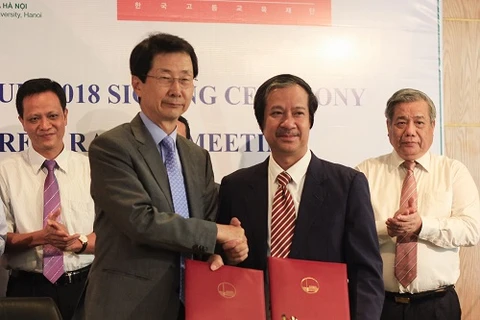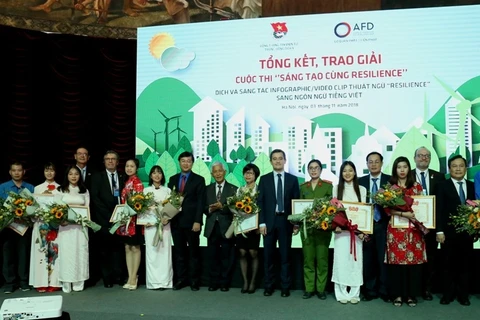Hanoi (VNA) – Environmental experts and scientists gathered at a conference in Hanoi on November 7 to discuss measures to mitigate the impacts of climate change, investment opportunities in renewable energy, and tools to evaluate an environmental strategy in Vietnam.
The event was jointly held by the Vietnam Academy Social Sciences (VASS) and the UN Development Programme (UNDP) in Vietnam.
VASS Vice President Dr Dang Xuan Thanh said that under the Law on Environmental Protection, since 2014, all socio-economic works, strategies, and plans have had environmental evaluations included.
He said that the conference is a chance for scientists and researchers to gain a better understanding of the integration of climate change mitigation measures into socio-economic strategies and plans in Vietnam.
According to a report released in October by the Intergovernmental Panel on Climate Change, by the end of the 21st century, the globe will be 3 degrees Celsius warmer, which will create negative impacts on people’s livelihoods, the environment, and ecosystems.
Currently, the global temperature has reached 1 degree Celsius warmer than before the industrial period started.
For Vietnam, global warming effects have been seen in increasing floods, reduced aquatic resources, and the disappearance of coral reefs and sea grass – all of which has greatly affected the livelihoods of people living on aquaculture.
Jiri Dusik from the UNDP Vietnam said that carbon consumption in Vietnam remains high, leading to difficulties in implementing climate change commitments made at the 2015 UN Climate Change Conference.
He noted that greenhouse gas emissions in Vietnam are predicted to increase three times over the 2010-2030 period, adding that the majority of emission sources come from the energy sector.
In 2030, Vietnam will have 64 coal-fueled thermal power plants, most of which are located in coastal areas. They will seriously affect the maritime ecosystem and locals’ livelihoods and living conditions, he said.
Dusik stressed the need for Vietnam to replace traditional power sources with more renewable options, such as solar and wind power.–VNA
VNA























